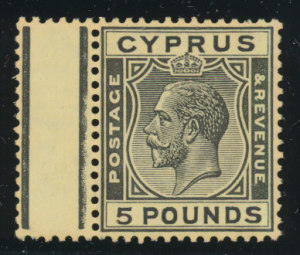It is a curious fact, mostly to do with poorly designed and implemented rules, that banking crises in tiny countries can bring the world financial system nearly to collapse. Places like Iceland and Cyprus, which were more well known to philatelists than to the general public, have been given the power (by the European Union's bizarrely lax banking rules) to take deposits that essentially have the guarantee of the European central bank (and behind that, the full faith and credit of the Bundes bank of Germany). Thus, over the last decade, Germany continues to bail out smaller and weaker economies and have more and more say in how those countries run their internal affairs. Does anyone doubt that the period since the Franco-Prussian War of 1870 (including WWI and WWII) will be called, by future historians, the Wars of European Unification, and that the winner, and power in unified Europe, is Germany?
The latest problem country is Cyprus, whose banks are illiquid and for which some sort of bank bailout is being devised. Philatelists know Cyprus for a different reason. Cyprus has a tripartite philatelic history. Geographically, Cyprus is on the border between the Greek area of influence and the Turkish area of influence. For the earliest part of world history, this didn't matter much as the political processes in Turkey were largely Greek and, until the late Middle Ages, Cyprus was ruled by the Byzantine Empire (then called just the Roman Empire, which had its capitol in Constantinople). The first stamps of Cyprus show its status as a British Protectorate which it became after Britain guaranteed Cypriot sovereignty to protect it from the Turks and the Russians. The stamps of Cyprus are collected as part of the philately of British Europe. Many of the most popular British stamps have been issued for Cyprus. Currently, part of the island has a Turkish administration and issues their own postage stamps. But the British issues for Cyprus remain very popular, especially among Russian collectors of British Commonwealth (and many of the currently most prominent collectors of British material are Russian industrialists who love stamps and are influence by a desire to move assets beyond the ruble zone). It was the Cypriot role as a banking center for Russian money that has caused the current crises, so it seems appropriate that it has been Russian money that has caused the run up in the value of older Cyprus stamps.

